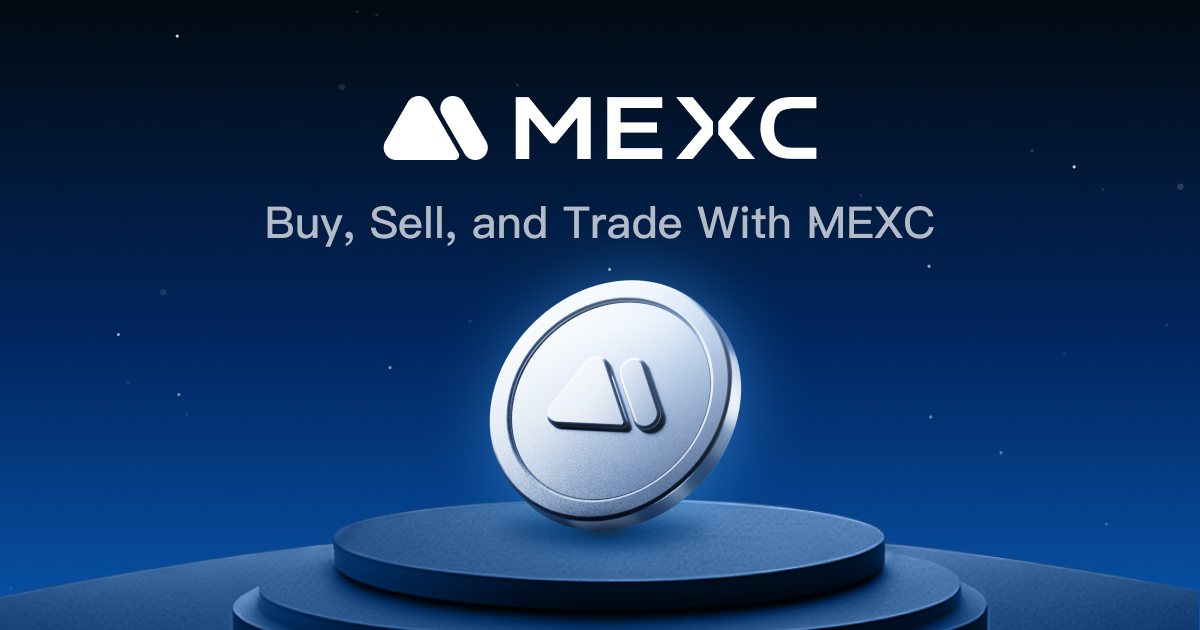
6 minute read
Is MEXC Legal in Europe? What You Need to Know
from MEXC
by Exness_India
If you’re wondering whether MEXC, a popular cryptocurrency exchange, is legal to use in Europe, you’ve come to the right place. This article will give you a clear and direct answer, backed by the latest information and legal context. We’ll also explain what it means for users, how regulations affect the platform, and what you should be aware of when trading cryptocurrencies on MEXC in European countries.

✅ Trade with MEXC now: Open An Account 👈
What is MEXC?
MEXC (previously known as MXC) is a global cryptocurrency exchange that offers spot trading, futures, and a wide range of digital assets. Since its inception in 2018, MEXC has gained popularity for its user-friendly interface, extensive list of tradable tokens, and relatively low fees. The platform serves millions of users worldwide and continuously expands its services.
Is MEXC Legal in Europe?
The short answer: Yes, MEXC is generally legal to use in Europe, but with some important caveats.
Europe does not have a single, unified crypto regulatory framework applicable to all countries yet. Instead, each member country has its own rules and regulatory agencies overseeing cryptocurrency activities. Moreover, the European Union (EU) is in the process of introducing broader regulations like the Markets in Crypto-Assets (MiCA) framework to standardize crypto laws across member states.
What Does “Legal” Mean in This Context?
When we talk about whether MEXC is legal in Europe, we mean:
Is MEXC authorized to operate and provide services in European countries?
Can European users legally register, deposit funds, trade, and withdraw on MEXC without breaking local laws?
Does MEXC comply with anti-money laundering (AML) and know-your-customer (KYC) regulations required in Europe?
Current Legal Status of MEXC in Europe
Licensing and Regulation
MEXC operates globally but is not currently licensed specifically by any European financial regulatory authority, such as the UK’s Financial Conduct Authority (FCA), Germany’s BaFin, or France’s AMF. This means:
MEXC is not officially regulated as a financial services provider in the EU.
The platform operates as an international crypto exchange accessible via the internet.
User Access and Restrictions
European users can generally access MEXC’s website and trade cryptocurrencies on the platform. However, some countries may impose restrictions:
Certain European jurisdictions might restrict or ban access to non-regulated crypto platforms.
Users should verify if their country requires exchanges to hold a license for operating within their borders.
Compliance with AML and KYC
MEXC enforces KYC procedures for users, requiring identification verification to comply with global AML standards. This is crucial because Europe’s regulatory environment emphasizes combating money laundering and terrorist financing through strict customer verification processes.
European Union's Regulatory Outlook
The EU is actively working on crypto regulations that will affect exchanges like MEXC in the future:
The Markets in Crypto-Assets (MiCA) regulation aims to create a uniform legal framework across the EU by 2024 or 2025.
Under MiCA, exchanges offering services to EU citizens will need to obtain licenses and comply with stringent consumer protection rules.
Once MiCA is enforced, platforms like MEXC will need to adapt by either acquiring licenses or partnering with licensed entities to continue serving European users legally.

✅ Trade with MEXC now: Open An Account 👈
What Should European Users Know Before Using MEXC?
Risks of Using Non-Registered Exchanges
Since MEXC is not currently licensed by European regulators, users face some risks:
Lack of investor protection: In case of platform failure or fraud, European users might have limited legal recourse.
Potential for sudden service restrictions: Regulatory authorities could require blocking access or restrict certain services without prior notice.
No deposit insurance: Unlike some regulated exchanges, MEXC may not offer deposit insurance or fund safeguarding measures mandated in regulated jurisdictions.
Advantages of Using MEXC Despite Regulatory Gaps
Despite the lack of official licensing in Europe, MEXC offers benefits that attract many users:
Wide variety of cryptocurrencies and trading pairs not always available on regulated European exchanges.
Competitive fees and advanced trading features such as futures and margin trading.
Accessibility for traders who prioritize diverse token availability over regulatory guarantees.
Steps to Use MEXC Safely in Europe
If you decide to use MEXC, keep the following safety tips in mind:
Always complete the KYC verification to avoid withdrawal or transaction restrictions.
Use strong security measures like two-factor authentication (2FA).
Be cautious about storing large amounts of crypto on the exchange — consider using private wallets for long-term storage.
Stay informed about any regulatory updates from your country’s financial authority.
How Does MEXC Compare to Regulated European Exchanges?
In Europe, exchanges like Binance Europe, Kraken, and Bitstamp have obtained licenses from local authorities, offering users a higher degree of protection and regulatory oversight.
Benefits of Regulated Exchanges
They comply fully with European AML and consumer protection laws.
They often provide clearer legal recourse and customer support tailored to EU consumers.
Their operations are regularly audited, increasing transparency and trust.
When Might Users Prefer MEXC?
Some European users prefer MEXC for its broad asset selection and innovative trading products not yet available on regulated platforms. However, this comes with the trade-off of less regulatory protection.
Summary: Is MEXC Legal in Europe?
MEXC is accessible and generally legal to use by European residents as of now.
The platform is not officially licensed or regulated by European financial authorities, which poses some risks.
European users must comply with their local laws regarding cryptocurrency trading.
Upcoming EU regulations (MiCA) will likely require MEXC to seek licensing or modify its operations to continue serving the European market legally.
Users should practice caution and prioritize security when trading on MEXC.
Final Thoughts
If you live in Europe and want to trade cryptocurrencies, MEXC is an option, but not a fully regulated one. It offers access to a vast selection of digital assets and competitive trading features, yet it lacks the official licenses that provide stronger consumer protections in Europe.
For those prioritizing regulation, safer options are available with exchanges licensed in the EU or specific countries. But if you’re an experienced trader comfortable with some regulatory risks, MEXC can serve as a versatile platform — just be sure to follow security best practices and keep abreast of evolving crypto laws in Europe.
✅ Trade with MEXC now: Open An Account 👈
Read more:








